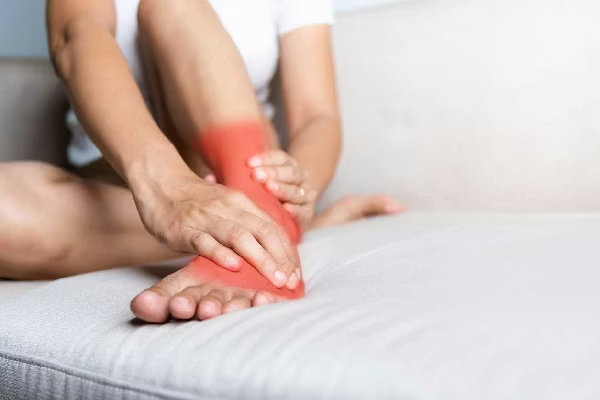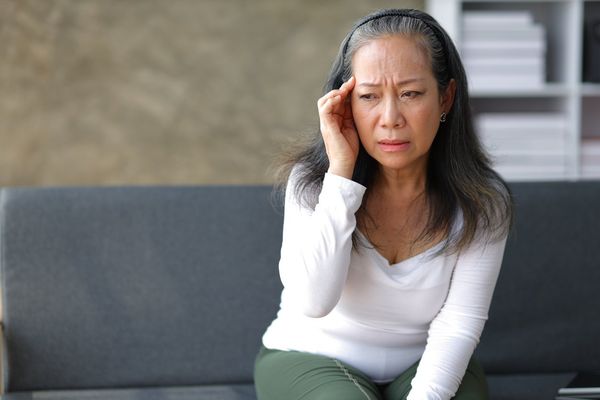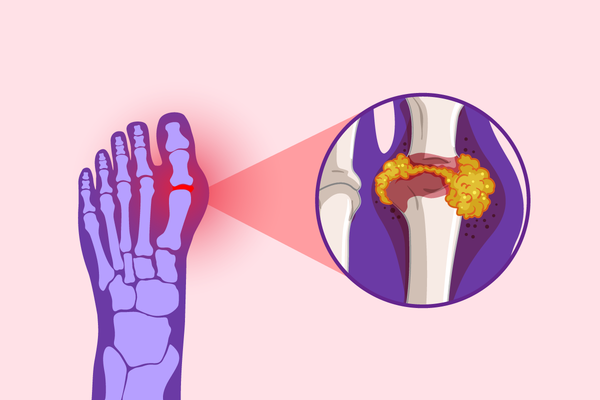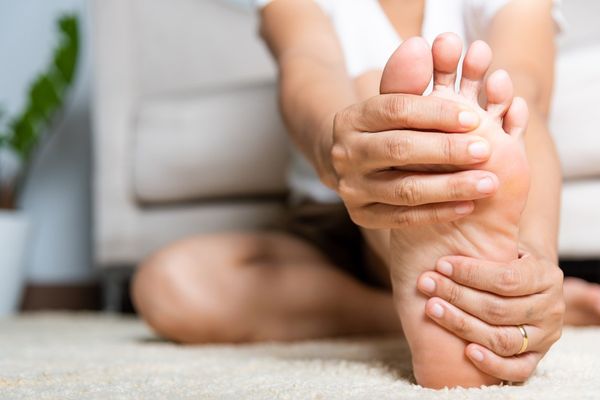Pain in your neck. Pain in your back. Pain during that time of the month. We've all had pain, some of us more than others. But how much do you really know about how to manage all your aches and pains?
We spoke with an expert on pain management to get you the answers you need. Yvonne D'Arcy, MS, CRNP, CNS, is a pain management and palliative care nurse practitioner with more than 20 years of pain management experience. She has held positions as pain and palliative care nurse practitioner for Johns Hopkins Medicine Suburban Hospital in Bethesda, Maryland, and Mayo Clinic in Jacksonville, Florida. She is the author of 10 books on pain management and presents frequently on a variety of pain topics.
Here is what she had to say about pain management and her current work.
Question: What is the latest book you're working on?
Answer: For many years, I thought primary care practitioners needed a book for pain management. The majority of people with chronic pain are showing up in primary care practices. Arthritis, osteoarthritis, migraines, other types of chronic pain, low back pain. They show up in a primary care office. Practitioners need some direction for patient management and support. I thought this is a book that was needed for a long time. It will be published in the first quarter of the year by Springer. It's for health care providers—physicians, nurse practitioners, physician assistants; those folks that are seeing and prescribing medications.
Question: Why did you see a need for this book for health care providers?
Answer: Primary care physicians are being inundated with all these patients with chronic pain. They do see ones with acute pain like slips, trips and falls. The vast majority of low back pain and migraine and arthritis cases are seen in the primary care setting on a long-term basis. Many of the pain clinics send people back to primary care. This book is a long time coming. I'm enjoying writing it. It contains a lot of new and interesting materials that I think clinicians will be able to use efficiently.
Question: Is pain management different for men and women?
Answer: That's an interesting question because it depends on which side of the gender gap you're on. I wrote a book on women's pain and can tell you that there are definite differences. Men use morphine efficiently. Women get a huge number of side effects. Women are seen as catastrophizing more. Women try to tough it out and self-treat it. It's hard on women because they have to take care of kids, cook, clean and have a lot on their plate. When they have pain, it is more of an issue.
Question: Is it true women have a higher tolerance for pain?
Answer: Tolerance is defined as how much pain someone is willing to experience. Women do have a higher tolerance and are willing to experience a higher level of pain. Pain is produced along the same pathways in men and women. Men tend to want things taken care of. A woman by far and large probably would just keep going with her pain with a migraine. They keep pushing ahead, looking for something to take care of it.
Women's pain is treated a lot differently. It's minimalized and marginalized. Male doctors try to make it seem we're complaining of something that isn't quite as severe as it is. If you're a minority woman, they have found that Hispanic and African American patients don't get pain medications as readily in emergency rooms as patients who aren't. It's just part of that medical disparity because doctors just don't seem to take their pain as seriously as other patients. It's perceived that they're just looking for medications, even when they're not.
Question: What should women consider when seeking pain management?
Answer: Women looking for pain management physicians need to interview them. They want to work with someone who is empathetic to their condition and who is willing to commit to long-term follow up and support. They shouldn't be focused only on medications. They should give a more holistic response. Women are more interested in essential oils and massage and acupuncture. Look for someone who includes that in your plan of care.
Anyone can prescribe medications. You need to make sure that the provider is someone you can rely on and trust. I feel sorry for women when get sent to a pain management specialist. I think they get categorized even before they get treated. You need to look for someone who is open-minded and listening to you and to what you're saying about your pain. If not, you need to find someone else.
I encourage women to go on websites with patient testimonials about providers. I think women should spend more time looking at that, so they have a good idea of what other folks have experienced. They don't need to feel bad if a provider they see doesn't work for them. You can use the patient advocacy system that you're working with and have them find a different provider. You don't have to stick with someone you don't like.
Question: What should women know about addictive pain management options?
Answer: There are a variety of things. Some patients with chronic pain do better with low doses of opioids. They have jobs and families and they do very well. They should know that there is the potential that they can develop a reliance on them. Women need to know that medications won't take away all their pain.
The negative thing is that there is the potential for developing substance abuse: Those who take more pills than are prescribed; get early refills; get pills from a multitude of providers. You should be going to one doctor, not shopping around town. But there is always the potential that can happen. Medications do cause addiction for some. But they are a good fit and can provide a higher quality of life, for others. It just depends. Use the lowest dose for a shorter period of time. Health care providers can offer a trial to see if it's effective. They're looking at in healthier ways.
Learn more about Women and Opioids: The Unseen Impact.
Question: Anything else you want to tell women about pain management?
Answer: Women need to be self-advocates. They can't let the system take over. They can't be afraid to disagree. They need to say, "That just doesn't work for me," and tell people what they need. If we can get more women to do that, we will be in good shape.







